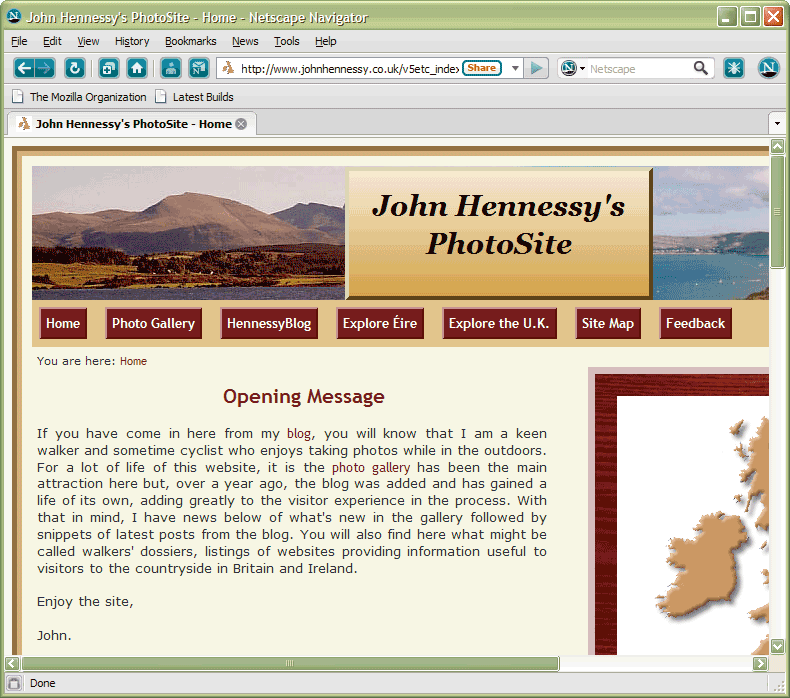Consolidation
19th November 2009For a while, the Windows computing side of my life has been spread across far too many versions of the pervasive operating systems with the list including 2000 (desktop and server), XP, 2003 Server, Vista and 7; 9x hasn’t been part of my life for what feels like an age. At home, XP has been the mainstay for my Windows computing needs with Vista Home Premium loaded on my Toshiba laptop. The latter variant came in for more use during that period of home computing “homelessness” and, despite a cacophony of complaints from some, it seemed to work well enough. Since the start of the year, 7 has also been in my sights with beta and release candidate instances in virtual machines leaving me impressed enough to go popping the final version onto both the laptop and in a VM on my main PC. Microsoft finally have got around to checking product keys over the net so that meant a licence purchase for each installation using the same downloaded 32-bit ISO image. 7 still is doing well by me so I am beginning to wonder whether having an XP VM is becoming pointless. The reason for that train of thought is that 7 is becoming the only version that I really need for anything that takes me into the world of Windows.
Work is a different matter with a recent move away from Windows 2000 to Vista heavily reducing my exposure to the venerable old stager (businesses usually take longer to migrate and any good IT manager usually delays any migration by a year anyway). 2000 is sufficiently outmoded by now that even my brother was considering a move to 7 for his work because of al the Office 2007 files that have been coming his way. He may be no technical user but the bad press gained by Vista hasn’t passed him by so a certain wariness is understandable. Saying that, my experiences with Vista haven’t been unpleasant and it always worked well on the laptop and the same also can be said for its corporate desktop counterpart. Much of the noise centered around issues of hardware and software compatibility and that certainly is apparent at work with my having some creases left to straighten.
With all of this general forward heaving, you might think that IE6 would be shuffling its mortal coil by now but a recent check on visitor statistics for this website places it at about 13% share, tantalisingly close to oblivion but still too large to ignore it completely. All in all, it is lingering like that earlier blight of web design, Netscape 4.x. If I was planning a big change to the site design, setting up a Win2K VM would be in order not to completely put off those labouring with the old curmudgeon. For smaller changes, the temptation is not to bother checking but that is questionable when XP is set to live on for a while yet. That came with IE6 and there must be users labouring with the old curmudgeon and that’s ironic with IE8 being available for SP2 since its original launch a while back. Where all this is leading me is towards the idea of waiting for IE6 share to decrease further before tackling any major site changes. After all, I can wait with the general downward trend in market share; there has to be a point when its awkwardness makes it no longer viable to support the thing. That would be a happy day.
Firefox spell checking: getting rid of a mispelling from your dictionary.
22nd October 2007Mozilla Firefox includes a spell checker and like any such function, it offers a chance to add words to a custom dictionary. Of course, you can also add misspellings too and these definitely need to be removed. With Word, it’s a matter of looking for custom.dic and deleting the nefarious item. With Firefox, it’s similar, at least on Windows anyway. The file that need to edit is persdict.dat and you’ll find it in C:\Documents and Settings\[user name]\Application Data\Mozilla\Firefox\Profiles\[random name].default. My search for the relevant information took me over to Lifehacker.
Update 2012-12-11: For users of Linux, the location of the above file is as follows: /home/[user id]/.mozilla/firefox/[random name].default. Once you find persdict.dat in there, the required editing can be perfomed.
The return of the Navigator
13th June 2007
With the launch of the ill-fated Communicator, Netscape dispensed with the Navigator brand that had served it so well up to that point. And it continued the practice when it turned to re-branding the output from the Mozilla project. The new Navigator is, in essence, a tweaked variant of Firefox’s latest incarnation and has the spelling checking capability that I have been missing when giving Safari a spin. You have to ask why and I am not certain that I have the answer. That said, it does feel slick and works well, a definite change from some of it predecessors then.
ForecastFox issue
17th January 2007ForecastFox should be a useful utility, adding a weather toolbar to Mozilla Firefox as it does. However, it developed a penchant for hogging the CPU when I upgraded from Firefox 2.0 to Firefox 2.0.0.1. I’ll hold out for a new version to see if the problem has been sorted. You can find out more here.